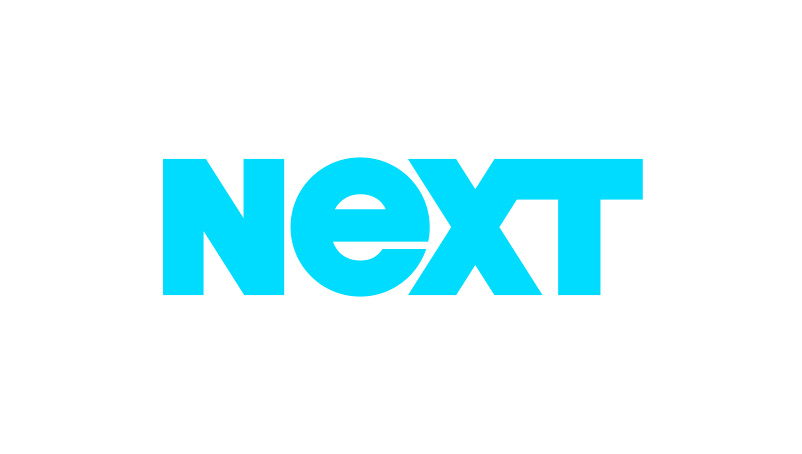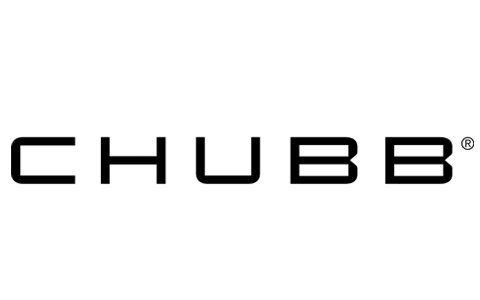If a customer gets injured at your business or one of your employees accidentally damages someone else's property, general liability business insurance could provide financial protection. General liability insurance (sometimes called business liability insurance or commercial general liability insurance) covers claims involving injuries or damages to a third party. Having a general liability policy can protect your business and personal assets in case your business is sued.
Here, we'll break down the best general liability business insurance providers and explain how these policies work.
Best general liability business insurance
- Best for fast online application: NEXT Insurance
- Best for businesses with complex needs: Chubb
- Best for flexible payments: Hiscox
- Best for working with an agent: The Hartford
- Best for short-term coverage: Thimble
Best for fast online application: NEXT Insurance

Bottom Line
Next Insurance is an online insurance provider for small businesses that covers over 1,300 professions in all 50 states. You can get quotes online in just a few minutes and start coverage immediately.
Pros
- Serves businesses in all 50 states
- More than 1,300 professions covered
- Instant quotes available online
- High customer ratings
- Provides wide range of coverages
- Offers customized insurance for specific industries
Cons
- Limited to businesses with $5 million or less in revenue
- Coverage not available for some high-risk businesses
- Limited customer service
Why we picked it: NEXT Insurance makes it easy to get a general liability policy quote in five to 10 minutes by answering a few questions about your business, though there's also the option to work with an agent in your state. After you've selected your coverage and submitted your payment, coverage can begin immediately. After your policy is in force, you can access a certificate of insurance (COI) and update it to add an additional insured at no extra cost.
Who it's best for: NEXT Insurance is best for small- to medium-size businesses with relatively straightforward insurance needs. It's a good choice for those who want the convenience to buy and manage their policy entirely online.
Best for working with an agent: The Hartford

Bottom Line
The Hartford is a well-established commercial insurance provider, with about 1.5 million policies nationwide. The company's online tools make it easy to figure out what type of coverage you need and obtain a quote online, but to buy a policy, you'll need to go through an agent.
Pros
- Top-ranked digital small business insurance
- Local insurance agents for real-world support
- More than 200 years of experience
- Wide range of small business insurance coverages
Cons
- Premiums can be higher than competition
- Must buy coverage through an agent
- Not available in all states
Why we chose it: The Hartford offers a number of digital tools to help you assess your small business insurance needs. You can get a quote for general liability insurance and other business policies online, but you'll need to go through an agent to buy coverage. The Hartford also offers many different specialized insurance products based on industry, as well as umbrella policies.
Who it's best for: The Hartford is best for business owners who have unique insurance needs and can benefit from the expertise of an agent. It's also a good choice for those who aren't comfortable buying coverage and managing their policy entirely online.
Best for businesses with complex needs: Chubb

Bottom Line
As the No. 1 provider of commercial lines of insurance by direct premiums written, Chubb provides a vast selection of small business insurance offerings that can be customized according to your industry or specific business needs. The company also offers comprehensive risk management solutions for businesses. Though small businesses can get quotes and purchase coverage online, most businesses with annual revenue above $2 million need to work with an agent.
Pros
- Covers businesses with up to $30 million in revenue
- Below-average number of complaints
- Worldwide coverage available
- Ability to customize coverage
Cons
- Must buy coverage through agent if company revenue is over $2 million
- Cheaper options may be available
Why we picked it: As your business scales, your small business insurance needs often become more complex -- which is where Chubb's general liability business insurance shines. Chubb's commercial liability insurance offers global protection for any lawsuits brought in North America. Policies take a broad definition of insureds by automatically including vendors, real estate managers, and any new and existing subsidiaries.
Continuum® by Chubb® is an add-on you can purchase to fill common gaps in liability coverage, such as protection in case your business is sued over an incident that occurred under previous ownership.
Who it's best for: Chubb's insurance and risk management offerings make it a good fit for businesses with global operations, those that frequently work with vendors, and those that are growing through acquisitions.
Best for flexible payments: Hiscox

Bottom Line
Hiscox makes it easy to shop for small business insurance or file a claim online, though there's also the option to work with an agent. The company insures over 500 professions and has several options for customizing policies. Flexible payment options allow you to pay your premiums on your schedule at no extra cost.
Pros
- Easy online application
- Option to work with agent
- Ability to customize policy
- Flexible payment options
Cons
- Business owners policies limited to companies with 10 or fewer employees
- Standalone commercial property insurance isn't available
Why we picked it: Hiscox makes it simple for business owners to shop for a general liability policy online and begin coverage immediately. It offers discounts for home-based businesses, which make it a good option for solopreneurs. Hiscox allows you to make payments monthly, quarterly, semi-annually, or annually at no additional cost.
Who it's best for: Hiscox's quick online application process, discounts for home businesses, and flexible payment options make it a top choice for self-employed people and startups.
Best for short-term coverage: Thimble

Bottom Line
Thimble is known for its flexible insurance solutions for small businesses. You can purchase coverage by the job or by the month, as well as on an annual basis. Policies are underwritten by Thimble's third-party partners.
Pros
- Short-term policies available
- Offers event insurance
- Easy online application
- Download unlimited COIs online
Cons
- Policies aren't sold directly by Thimble
- Limited customer support
- Not a good fit for complex insurance needs
Why we picked it: Thimble is unique in that it allows you to purchase on-demand coverage for specific jobs, as well as on a month-to-month basis. You can apply online and have coverage in just a few minutes. There's also the option to add other types of coverage, like professional liability insurance, when you purchase your policy.
Who it's best for: Thimble's on-demand and short-term coverage options are great for freelancers and independent contractors who may only need occasional coverage. It's especially convenient if you only need coverage for events, like if you're a photographer or caterer.
What is general liability insurance?
General liability insurance is a type of business insurance that provides financial protection over claims of bodily injury, property damage, personal injury, or false or misleading advertising. These policies only provide coverage for injuries and damages involving a customer or another third party. If you or one of your employees is injured on the job, it's covered by worker's compensation insurance.
Who needs general liability insurance?
General liability insurance isn't required by law, but it's recommended for virtually any business that deals with customers in person, works off-site at someone else's property, or advertises its services. Without liability coverage, you'll need to pay the cost of claims involving injury or property damage out of pocket.
Many clients will require that you provide a certificate of liability insurance before they'll hire you. Landlords often insist that you carry liability insurance as a condition of a commercial lease for protection in case someone gets injured at your business.
What does general liability insurance cover?
General liability insurance helps you pay for legal fees and settlement costs if your business is involved in the following events.
Bodily injury
A commercial liability policy kicks in if a customer or another third party is injured on your business property or as the result of your operations. For example, if a customer slips and falls, a general liability policy could help with their medical payments.
Property damage
If you or one of your employees damages someone else's property while conducting business, general liability insurance can help cover costs. Say you own a moving business and one of your employees accidentally drops a pricey home entertainment system, a general liability policy may help with the costs.
Reputational harm and false advertising
Your policy can help cover non-physical injury events, like slander, defamation, or libel, as well as false advertising claims.
Commercial liability insurance doesn't typically cover the following events:
- Injuries or damages involving operation of a vehicle (covered by a commercial auto policy)
- Employee injuries and claims (covered by worker's compensation insurance)
- Professional liability for inappropriate advice or errors in the delivery of professional services, e.g., you're an architect and you design a building that doesn't comply with local codes or you're an accountant whose client incurs a tax penalty due to an error you made (covered if you have professional liability insurance)
- Sexual harassment, discrimination, and wrongful termination claims (covered if you have employment practices liability coverage)
General liability insurance can protect your business from expensive claims, but it's probably not the only type of insurance your small business needs. If you have questions about what insurance your business should have, it's worth taking the time to speak with an agent.
Cost for general liability insurance
General liability insurance costs an average of $42 per month, or $504 annually, for a $1 million policy, according to independent online insurance agency Insureon. However, the costs will vary based on:
- Coverage limits
- Deductibles
- Number of employees
- Where your business is located
- Type of business and industry
- Claims history
If you also need commercial property insurance and business interruption insurance, you may be able to save money by purchasing a business owner's policy, which combines all three types of coverage into a single policy.
-
Article sources
- https://content.naic.org/consumer/small-business.htm
- https://help.next-insurance.com/hc/en-us/articles/4417149133587-How-can-I-get-a-quote
- https://www.nextinsurance.com/glossary/additional-insured/
- https://assets-prod.nextinsurance.com/resources/gl-coverage-guide
- https://www.insureon.com/small-business-insurance/general-liability/cost
- https://content.naic.org/cis_refined_results.htm?TABLEAU=CIS_COMPLAINTS&COCODE=12777&:refresh
- https://www.chubb.com/us-en/businesses/lead-form.html
- https://www.chubb.com/us-en/business-insurance/risk-engineering-services.html
- https://www.chubb.com/ca-en/business-insurance/general-liability-insurance.html
- https://www.chubb.com/us-en/business-insurance/continuum-from-chubb.html
- https://www.hiscox.com/small-business-insurance/general-liability-insurance
- https://www.iii.org/fact-statistic/facts-statistics-commercial-lines
- https://www.hiscox.com/small-business-insurance/business-owner-insurance/bop-faq
- https://www.hiscox.com/small-business-insurance/business-owner-insurance/commercial-property
- https://www.thehartford.com/small-business-insurance
- https://www.thehartford.com/general-liability-insurance/how-much-does-general-liability-cost
- https://www.thehartford.com/business-insurance/industries
- https://www.thimble.com/general-liability-insurance
- https://www.insureon.com/small-business-insurance/general-liability/faq
FAQs
-
A $1 million general liability policy costs about $504 per year or $42 per month, according to Insureon. However, actual costs will vary based on factors like your industry, how many people you employ, location, and past claims history
-
A standard general liability insurance policy has a $1 million/$2 million limit, which means it will pay out up to $1 million for a single claim and up to $2 million over the life of the policy.
-
No, commercial liability insurance isn't required by law, but many clients require it before they'll enter into a contract. Without coverage, you'll have to pay the costs of injury and property damage claims out of pocket.
We're firm believers in the Golden Rule, which is why editorial opinions are ours alone and have not been previously reviewed, approved, or endorsed by included advertisers. Motley Fool Money does not cover all offers on the market. Motley Fool Money is 100% owned and operated by The Motley Fool. Our knowledgeable team of personal finance editors and analysts are employed by The Motley Fool and held to the same set of publishing standards and editorial integrity while maintaining professional separation from the analysts and editors on other Motley Fool brands.